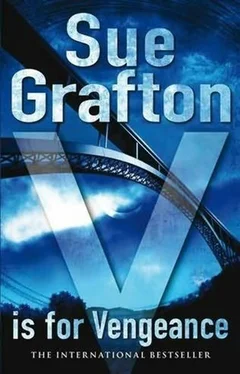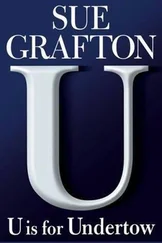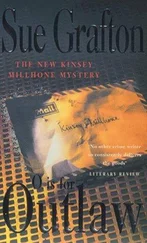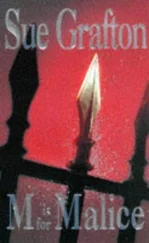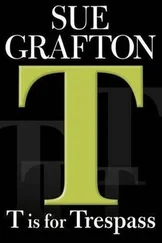After Earldeen left, I went over my notes again. I’d never felt quite so enamored of my index cards. They were like the pieces of a puzzle that would fall into place once I understood what I was looking at. I shuffled the cards and laid them out on my desk. I could arrange the facts in any order I liked, but the bits and pieces would come together only when I perceived their true relationships. The process kept my thinking loose, so I didn’t get too invested in having the narrative line up the way I thought it should. For the moment, I was without direction, but instead of being discouraged, I saw this as an opportunity to stop and take note. It was like standing in a slow-moving stream with information flowing over and around me. I could turn in any direction and survey my surroundings while I debated where to cast my line.
I turned up the card on which I’d noted the name of the real estate office offering the ramshackle cottages for sale, a company called Providential Properties. It would be interesting, thought I, to find out who the tenant had been and for what period of time. I pulled out the phone book and looked up the real estate office in the yellow pages. There was only one address listed, that being in Colgate, California, which suggested this wasn’t a multinational company with branches in London, Paris, and Hong Kong. A chat with the realtor would be nice, and better in person than by phone.
I stopped for gas and a trip to the ladies’ room before I got on the 101, which gave me time to think about a cover story. Why would I be inquiring about run-down real estate? In my jeans and turtleneck, I looked shabby enough. I’d never bought property, even in pretense, and I had no idea how one went about it. What if I were asked for my home address, occupation, and my place of employment? I decided to make that part up if and when it came to it. For all I knew, Providential Properties, like Helping Hearts, Healing Hands, was a figment of someone’s imagination.
I found the office in a line of businesses on the main street that ran through Colgate. I passed the place, did a quick scan, and then parked down the block. Outside the office, I paused to look at the window display showing photographs of the properties available. Most appeared to be commercial, and I noticed then that the small print on the company sign said OFFICE, INDUSTRIAL, RETAIL, AND INVESTMENT PROPERTIES. It wasn’t until I’d put my hand on the knob that I spotted a paper clock and a note dangling from a suction cup affixed to the inside of the glass. BACK IN TEN MINUTES. The clock hands had been set to 11:00. My watch said 11:45. I turned and checked for pedestrians up and down the sidewalk, thinking the returning agent might be in sight. While there were any number of people out and about, none was heading in my direction. I wasn’t sure whether to wait or give it up altogether.
I went into the shoe-repair shop next door, which smelled divinely of leather, glue, paste shoe polish, and machinery. The fellow working behind the counter was restitching the strap on a knapsack. He was in his seventies and looked up at me over the half rims of his bifocals, his curly white hair brushing his shoulders.
I said, “Do you have any idea when the realtor next door might return? The sign on the door says ten minutes, but that was forty-five minutes ago.”
“She went home. She does that sometimes when business is slow.”
“Really. I wonder why she didn’t just close up shop and be done with it?”
“She hates to turn away a client. Lot of people come in here looking for her. I’ll give you her business card. If you leave a message on her answering machine, she’ll call you back.”
This would mean a second trip out, which annoyed me no end, but I couldn’t see an alternative. “I guess that’ll have to do.”
He got up and crossed to the counter where he opened a drawer and fumbled among the contents before handing me a card decorated with smudged fingerprints.
As I thanked him, my gaze dropped to the agent’s name. Felicia Stringfield. I said, “Felicia?”
“Do you know her?”
“I believe I’ve heard the name,” I said. “Does she handle residential properties?”
“If she’s given the opportunity. She’s not one to refuse a request.”
“Well, that’s good,” I said. “I’ll give her a call and maybe stop by again if she’s going to be in.”
“You want to leave your name and phone number?”
“Don’t worry about that. I’ll get back to her. Thanks.”
I returned to my car and dug out my index cards. I removed the rubber band and rifled through them rapidly until I came to the notes I’d taken after my first meeting with Marvin. Felicia was the first name of the agent who was set to show Marvin and Audrey houses for sale on the day she disappeared. There could be a whole subset of agents named Felicia, but I doubted it. I would have loved confirmation, but I really didn’t want to talk to Marvin at this point. If the agent was the same, it couldn’t be a coincidence that she was offering cottages for sale or rent at an address that was tied to the consignment shop.
I closed my eyes, running the facts down in my mind. I couldn’t see a junction where all the points converged. I sensed the contours of the theft ring and I knew some of the players by name. I also knew how (but not what) they moved between locations. The problem was I had no authority to act. At best, I could make a citizen’s arrest, but I’d never set much store by the concept. If I managed to collar a crook, what would prevent his simply laughing it off and walking away? The minute I laid a hand on him, he’d respond with charges of assault. I’m a small-town private investigator. Bringing down an organization like this was the job of law enforcement.
I found the nearest pay phone and called Cheney Phillips’s direct line. When he picked up, he seemed to recognize my voice but I identified myself nonetheless. “Can I talk to you?”
He said, “Sure. I’ve got time this afternoon if you want to stop by. What’s good for you?”
“Not your office,” I said.
He was silent briefly. “Okay. Then where?”
“What about the Shack at Ludlow Beach?”
“Great. We can have lunch. My treat. See you there in twenty minutes.”
I hadn’t called him looking for a lunch date, but the minute he mentioned it, I realized I was starving so why not? I’d chosen the location because it was off the beaten path, a tourist spot as opposed to a restaurant frequented by local residents. The place was bound to be somebody’s favorite, but it wasn’t popular with cops. The Shack was right on the beach, sheltered from the view of passing cars by a large parking lot. Blue-and-white-striped awnings shaded the deck where the tables were set out. Once upon a time, I’d come close to being killed in the big trash bin outside. This counts as nostalgia for someone like me.
I found a table for two in the corner on the far side and sat facing the entrance. When Cheney appeared, I lifted my hand to attract his attention. He threaded his way between the tables, and when he reached me he gave me the obligatory buss on the cheek before he pulled out a chair and sat down. He was in chinos, a white dress shirt, and a sueded silk sport coat the color of wild brown bunnies. Cheney came from money and while he’d declined to go into his father’s banking business, a trust fund allowed him to dress with impeccable taste. He favored earth tones, colors that reminded me of nature’s softer side, in sensual fabrics I wanted to reach out and touch. He also smelled better than almost any man I’ve known, some combination of soap, shampoo, aftershave, and body chemistry. There were moments I remembered from our short-lived affair and I had to resist the temptation to sexualize my contact with him.
Читать дальше
